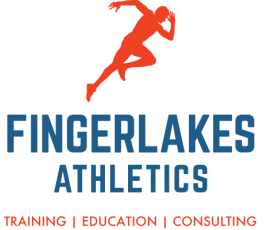|
Working in the health and wellness field, I have been exposed to evidence based decision making. This is the concept of basing decisions on well controlled research studies that seek to identify the best practices. Now, there is information that this can be applied to other fields, including management. Pfeiffer and Sutton have written articles and books on Evidence-based management that take the concepts of evidence based medicine and apply them to management.
The general concept remains the same, base decisions on research. However, as they note, this is not as easy as it sounds. In order to ascertain how useful the research is, it has be read, understood and examined. Conclusions of a study may not be applicable to all fields. The reader needs to know their field and evaluate how accurately the research represents their field and individual needs. It is a start, and a very good one, for researching prior to making decisions. Decision making has historically been done in flawed manners; using past, outdated information, relying on vendors, placing higher trust in known entities and mimicking high performers. This way of making decisions may be neglecting current concepts and scientifically backed conclusions. So, the question remains, how can we alter this? We can start by being curious and open to new ways of doing things. Instead of adopting a new approach because it was presented, seek to know more. How will it be done? Who has done it before? Will it fit our current structure and culture? If the answer is yes, then pilot it. Evaluate the new strategy against the existing one to see if it is better. Continue to do this process with new ideas to determine what the best way of doing something is. Try new programs and seek to do things better. Learn from others. There is a plethora of research available, read it. Search online journals (open access does not involve a subscription fee) to learn what researchers have discovered on various topics including human resource management, staffing, compensation structure, evaluations, etc. If the information is out there, try to get a hold of it. Then read it and see if the conclusions match what you are currently doing. If not, is there a way to try it? Will it fit your organization? Research looks to minimize the variables in order to determine a cause and effect relationship. In reality, things work in many more complex ways. Research is a great starting point for learning what is already known then piloting a program to incorporate that information can be done to see how it interacts in your own processes. There is not a one way works best. But, rather than faltering and foundering, constantly seek to know more. Being curious, reading and discussing with others, can improve your ability to make sound decisions. Decisions based on best practices can help you get to the top and stay there. Pfeffer, J & Sutton, R. Evidence-based management. Harvard Business Review. On Point Article. January 2006.
0 Comments
Leave a Reply. |
AuthorI write on sport management, fitness, sports medicine and business topics to help you reach your goals Archives
February 2024
Categories
All
|
|
Home
About Contact |
To learn more about what services we offer, to schedule an appointment or to get prices please contact me at
[email protected] (607)279-6791 *This site is for educational purposes only, it is not meant to diagnose, treat or replace medical advice. Before starting an exercise program always make sure that you are healthy and able to do so safely.* |


 RSS Feed
RSS Feed